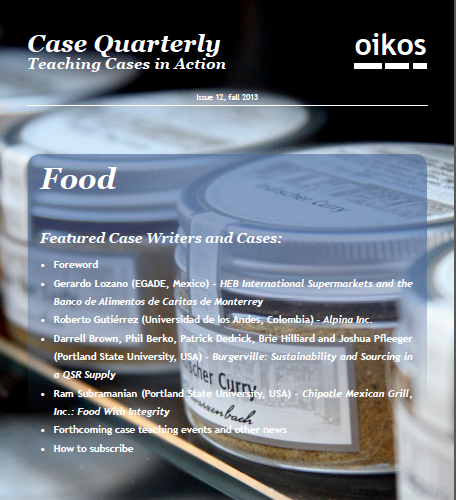The number of issues and implications the food industry faces in terms of sustainability is incommensurable. We hereby present four cases to help illustrate some of the most fundamental...
Case Abstract Brett Beach and Tim McCollum, co-founders of Madécasse, spent two years as Peace Corps volunteers in Madagascar. During that time, they fell in love with the...
Case Abstract This case describes how Florida Ice & Farm (FIFCO), Costa Rica’s leading beverage company, develops and implements a triple bottom line strategy that addresses not only...
Case Abstract Chipotle Mexican Grill, Inc. (CMG) was a Denver, Colorado-based chain that competed in the fast casual segment of the restaurant industry. The chain offered a range...
Case Abstract In June 2012, serial ecopreneur, Chris Morrison, was wondering just how many All Good Bananas he could sell into banana-hungry New Zealand. From trials bringing Fairtrade...
Welcome to Issue 10 (Spring 2013) of the oikos Case Quarterly! The latest issue of the oikos Case Quarterly focuses on the sustainability practices and challenges of the beverage industry. Four cases...
Case Abstract From October 2007 till September 2010, the Rainforest Action Network (RAN), an environment and sustainability-focused nongovernmental organization (NGO) mounted a public campaign against Cargill, the United...
Case Abstract The case drives a discussion around events in 2005-2006 when the University of Michigan decided to cut its contract with Coca-Cola because of the company’s environmental...
Case Abstract Burgerville, a local quick-serve restaurant chain in the Pacific Northwest prides itself on its attention to keeping its menu items “Fresh, Local, Sustainable.” A family-owned business...
Case Abstract This case describes the issues and dilemmas facing a company in their efforts to differentiate their product through a social sustainability programme. Over the years, the...


